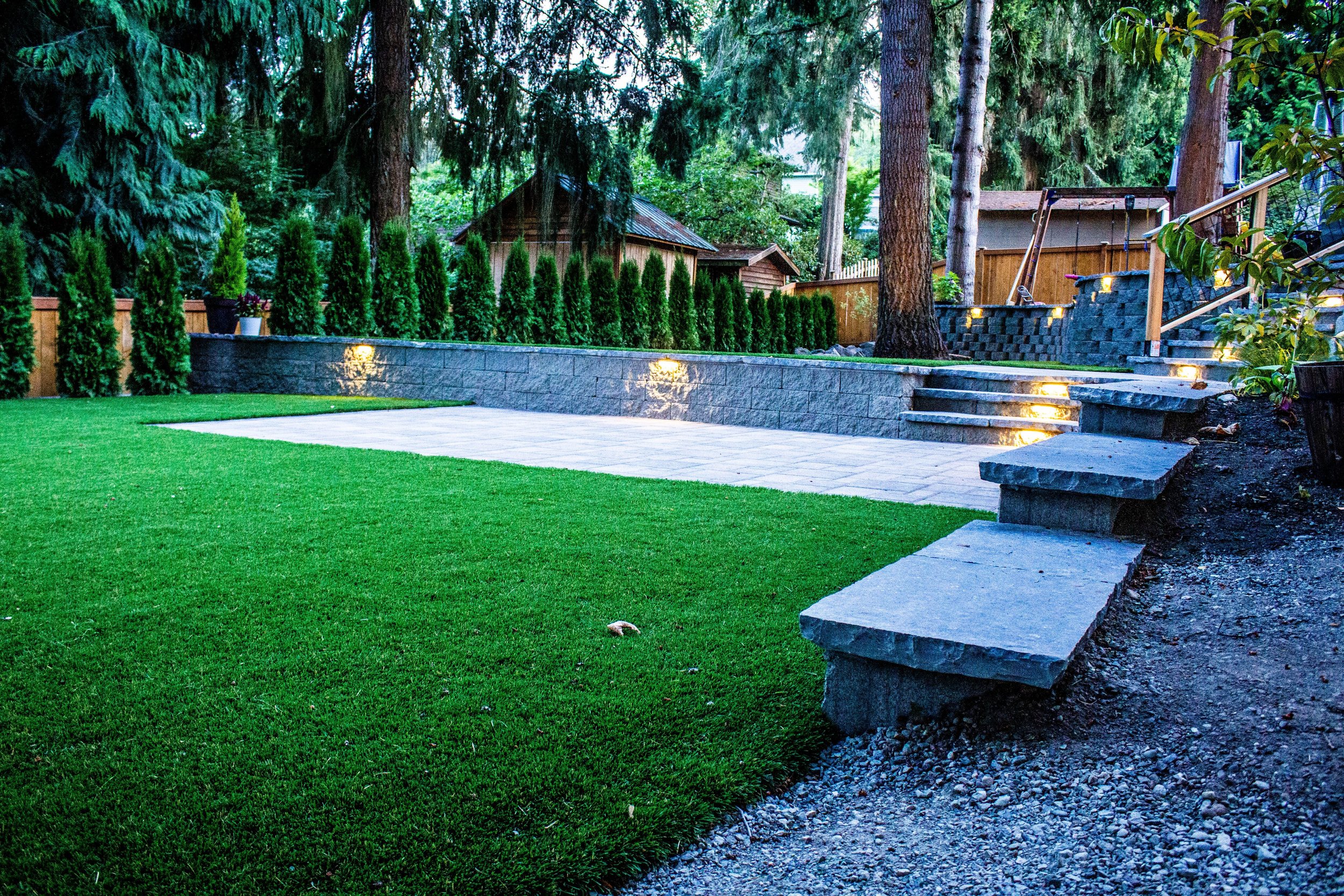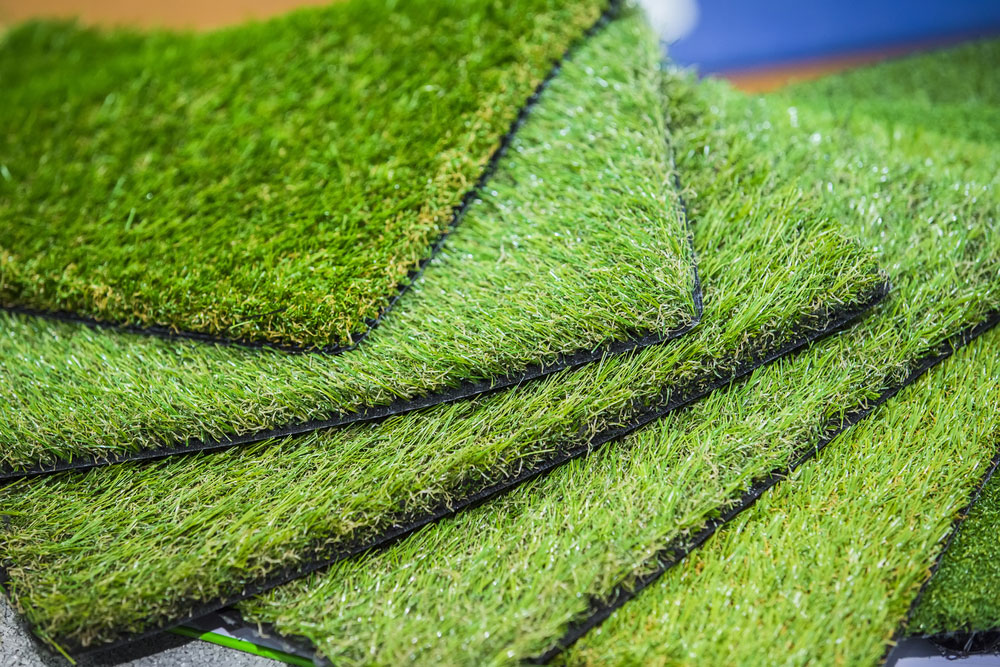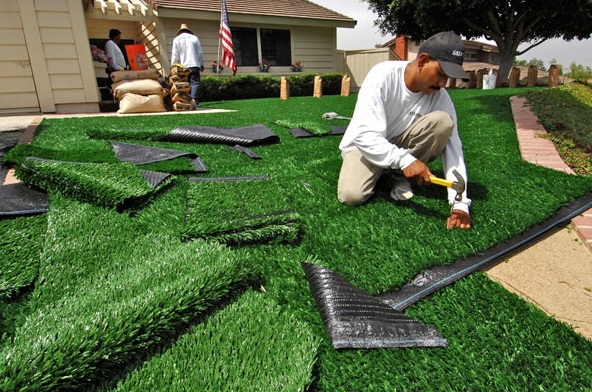Choose the Best Turf Installation Phoenix AZ Solutions for Your House or Business
Choose the Best Turf Installation Phoenix AZ Solutions for Your House or Business
Blog Article
Look Into the Environmental Benefits of Opting for Artificial Turf Solutions
The adoption of artificial grass services provides a compelling chance to attend to pressing ecological challenges. By considerably lowering water usage and minimizing the application of unsafe chemicals, these options not only promote sustainable landscape design but likewise secure regional ecosystems.
Water Preservation Benefits
One of the most considerable advantages of synthetic lawn is its ability to conserve water. In comparison, man-made turf does not need watering, significantly minimizing the overall need for water sources.
By removing the demand for normal watering, synthetic grass adds to sustainable landscape practices and aids reduce the environmental influence of extreme water consumption. The preservation of water expands to the reduction of overflow, which can lead to dirt disintegration and waterway pollution.
Additionally, the setup of synthetic grass enables house owners and towns to allot water resources more efficiently, focusing on essential uses such as alcohol consumption water and agriculture. The shift in the direction of fabricated grass not only advertises liable water use however additionally lines up with broader environmental goals focused on protecting natural deposits.
As areas significantly prioritize sustainability, the water preservation benefits of man-made grass offer a compelling situation for its adoption in property and business landscape design tasks.
Reduced Chemical Usage
The shift to synthetic grass dramatically reduces the dependence on chemical treatments generally utilized in natural turf maintenance. Traditional lawn administration commonly includes the application of fertilizers, herbicides, and pesticides to advertise growth and control parasites. These chemicals can posture dangers to human wellness, local wildlife, and the setting, adding to soil and water contamination.
In contrast, man-made grass gets rid of the need for these dangerous compounds. As soon as installed, it needs minimal upkeep, primarily including routine cleaning and seldom infill replenishment. This reduction in chemical usage not only benefits the instant atmosphere yet likewise adds to wider environmental stability. By decreasing the launch of synthetic compounds right into the community, synthetic grass promotes healthier dirt and water systems.
Moreover, the absence of chemical overflow related to synthetic grass setups aids shield local rivers from air pollution, supporting marine life and maintaining biodiversity. Arizona turf. As neighborhoods increasingly focus on lasting techniques, selecting synthetic grass offers a sensible option that straightens with environmental preservation objectives. Through this change, homeowner can enjoy lavish environment-friendly areas without jeopardizing environmental health and wellness, paving the means for a much more lasting future
Reduced Carbon Footprint

Moreover, the installation of synthetic lawn can lead to substantial water conservation. All-natural grass need considerable quantities of water for watering, which not only contributes to the carbon impact related to water extraction and treatment yet additionally strains regional water sources. In comparison, artificial grass requires minimal maintenance, calling for browse around this web-site no watering, consequently considerably reducing water use and its linked energy costs.
Additionally, the durability of synthetic grass adds to its decreased carbon influence. With a life-span of as much as 15 years or more, the requirement for regular substitutes is reduced, causing less waste and reduced power intake in production and throwing away conventional lawn options. On the whole, artificial turf provides a sustainable option for eco mindful landscape design.
Environment Preservation
Environment preservation is a crucial consideration in the dispute over landscape design choices, specifically when comparing synthetic grass to all-natural lawn. All-natural yard yards usually call for comprehensive maintenance, including making use of fertilizers, herbicides, and chemicals, which can negatively impact neighborhood ecosystems. These chemicals can seep right into the soil and rivers, hurting native vegetation and animals and interrupting local environments.
Man-made lawn gets rid of the demand for hazardous chemicals, consequently shielding neighboring wild animals and preserving the integrity of bordering ecosystems. The installment of synthetic turf can lead to the conversion of former lawn areas right into more biodiverse landscapes, such as pollinator yards or native plant areas, which can sustain local wildlife.
Ultimately, the shift to man-made lawn not just saves water and decreases maintenance efforts but also promotes an extra harmonious relationship between human activities and the native environment, advertising environment preservation while doing so.
Long-Term Sustainability
Lasting sustainability is an essential consider examining the advantages of synthetic grass over standard grass lawns. Among the most significant advantages of synthetic grass is its toughness; it can last as much as 15-20 years with minimal upkeep, whereas natural yard needs frequent reseeding and replacement. This long life minimizes the need for consistent sources, such as water, plant foods, and chemicals, which are important for preserving a healthy yard lawn.
Additionally, synthetic grass adds to a reduction in carbon discharges connected with grass care tools. Standard yards often call for gas-powered mowers, trimmers, and blowers, all of which add to air pollution. Arizona turf. In contrast, synthetic grass removes the demand for such equipment, promoting a cleaner atmosphere
In addition, the production of man-made turf increasingly uses recycled products, boosting its sustainability profile. As producers take on green practices, the environmental impact of synthetic grass remains to diminish.

Final Thought
The adoption of visit here synthetic grass remedies provides considerable ecological advantages, consisting of substantial water preservation, reduced reliance on harmful chemicals, and a reduced carbon footprint. Fabricated lawn aids in maintaining natural environments by minimizing land disruption and advertising long-lasting sustainability through the use of sturdy products. Collectively, these elements highlight the capacity of synthetic grass to contribute positively to environmental wellness and offer a feasible alternative to conventional landscape design techniques in an increasingly resource-conscious world.
In comparison, man-made turf does not need watering, dramatically reducing the total need for water sources. By lessening the release of synthetic compounds right into the environment, artificial grass advertises healthier soil and water systems.
Moreover, the installation of fabricated lawn can result in substantial water conservation. In contrast, synthetic turf requires marginal maintenance, calling for no watering, consequently considerably lowering water usage and its associated energy costs.

Report this page